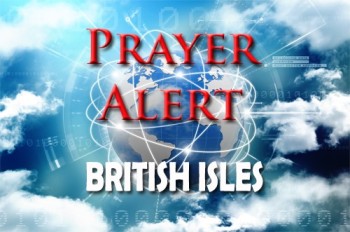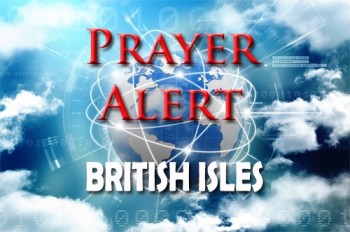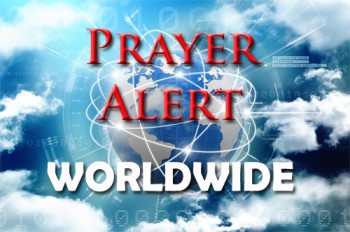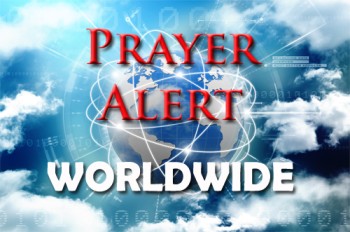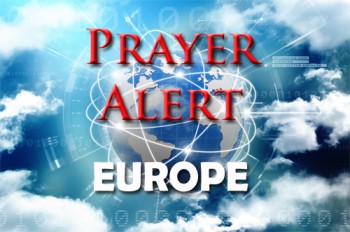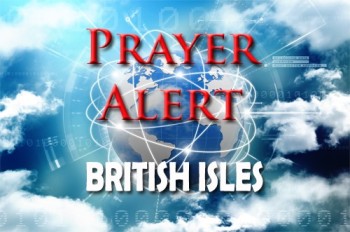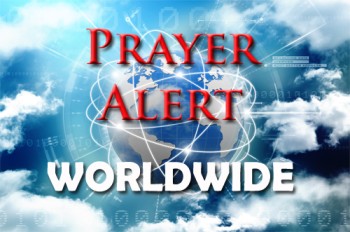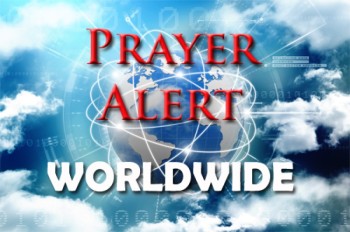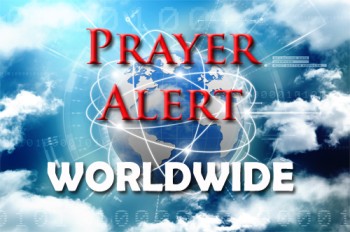Displaying items by tag: Palestine
Italy: two days of strikes in support of Palestine cause widespread disruption
Thousands of Italian workers and students staged a nationwide general strike and demonstrations on 21 September. Organised by grassroots unions and supported by Italy’s largest trade union, CGIL, the walkout disrupted public transport, trains, schools, and ports. Major cities such as Rome and Milan experienced severe transit delays, while sit-ins at Genoa and Livorno ports slowed the movement of goods. The action, which followed a similar strike the previous day, was called to protest about the humanitarian crisis in Gaza, Israel’s blockade of aid, and threats against the Global Sumud Flotilla mission. USB, a key union federation, criticised the government and the EU for refusing to impose sanctions on Israel and for maintaining economic ties despite ongoing violence. Rome authorities reported about 20,000 demonstrators at midday near Termini station, though organisers said there were up to 100,000. Meanwhile, Giorgia Meloni’s government faces rising domestic pressure over its stance on the Israel-Hamas war.
No 10 declines to say if Palestine will be recognised
Downing Street has refused to confirm whether the UK will proceed with recognising Palestinian statehood in September if Hamas remains in power or hostages are not released. Keir Starmer previously stated that recognition depends on Israel meeting certain conditions, including a ceasefire, increased humanitarian aid to Gaza, halting annexation of West Bank land, and engaging in a peace process. However, critics argue the move could reward Hamas, especially in light of comments by its leader Ghazi Hamad claiming recognition is a 'fruit' of the 7 October attacks. Families of British hostages and some Labour MPs have voiced strong objections, insisting recognition should be tied to the hostages’ release. Despite calling Hamas 'pariahs' with no future role in Gaza, Starmer’s spokesperson said no single party will hold veto power over the decision. The Government insists its focus remains on increasing aid, ending suffering in Gaza, and promoting a two-state peace solution. A final decision is expected at the UN General Assembly in September. See
MPs vote to proscribe Palestine Action
MPs have voted overwhelmingly to proscribe Palestine Action as a terrorist organisation under the Terrorism Act 2000, with 385 in favour and 26 against. Home secretary Yvette Cooper defended the move, stating that violence and serious criminal damage have no place in legitimate protest. Critics, however, warn that the decision could chill free expression, likening it to punishing suffragette-style activism. The move follows incidents such as activists vandalising planes at RAF Brize Norton and blockading defence firm Elbit Systems, aiming to disrupt UK arms links to Israel. Protesters outside Parliament condemned the Government for hypocrisy and accused it of suppressing effective dissent. Palestine Action insists its tactics, though disruptive, are non-violent and necessary to oppose alleged human rights abuses in Gaza. However, once the ban is approved by the House of Lords, membership or support of the group could carry prison sentences of up to fourteen years. The decision has sparked fierce debate over balancing security and civil liberties.
Cuba: president leads march to support Gaza
Cuba’s president, Miguel Diaz-Canel, has led thousands of protesters in Havana to show solidarity with Palestinians in Gaza. The march included around 250 Palestinian medical students and featured a large banner declaring, ‘Long live free Palestine’. The president and other leaders wore keffiyeh scarves as a symbol of solidarity. Participants expressed their support for Palestinian sovereignty and condemned Israel’s actions in Gaza. The march, originally scheduled for 7 October to mark the first anniversary of Israel's war on Gaza, was delayed due to Hurricane Milton. In June, Cuba joined a lawsuit filed by South Africa at the International Court of Justice against Israel's military actions in Gaza.
India: controversial MP backs Palestine at swearing-in ceremony
A usually staid swearing-in procedure for Indian parliamentarians turned controversial when veteran opposition legislator Asaduddin Owaisi chanted ‘Jai Palestine’ after taking his oath. ‘Jai’, meaning victory in Sanskrit, can be translated as ‘Long live’. He was accused by colleagues from the ruling BJP of violating his constitutional pledge by showing loyalty to another nation, a charge he denied. During the ceremony, Owaisi swore his oath in Urdu, pledging loyalty to the country’s constitution - but then chanted ‘Jai Bhim, Jai Meem, Jai Telangana, Jai Filisteen’. Each slogan represents various communities and regions: ‘Jai Bhim’ for Dalits, ‘Jai Meem’ referring to his party AIMIM, ‘Jai Telangana’ for his home state, and ‘Jai Filisteen’ for Palestine. This incident, amid India's complex political landscape, highlights his advocacy for minority and Dalit rights. He has been an MP from Hyderabad since 2004 and president of AIMIM since 2008, and is known for his fiery oratory in Parliament.
Three European countries recognise Palestine
The leaders of Norway, Ireland, and Spain have announced that their countries will recognise Palestine as a state on 28 May to promote peace in the Middle East, Norway’s prime minister Jonas Gahr Store said that there can be no peace in the region without recognition. Ireland’s prime minister Simon Harris and Spain’s prime minister Pedro Sanchez made similar announcements, with Sanchez condemning Israeli policies in Gaza. Harris expressed confidence that more countries would follow suit, and stressed Ireland's support for Israel's secure existence. Harris said that Ireland was unequivocal in recognising Israel’s right to exist securely and in peace with its neighbours, adding: ‘Let me also be clear, Hamas is not the Palestinian people. A two-state solution is the only way out of the generational cycles of violence, retaliation, and resentment.’ Israel’s immediate response was to recall its envoys from the three countries.
UK universities brace for 'Gaza solidarity encampments'
Pro-Palestinian activists at several British universities have started to set up Gaza 'solidarity encampments' in response to similar movements on US campuses. This follows recent confrontations at American universities like Columbia and UCLA, where police clashed with demonstrators (see World article ‘USA: hundreds of campus protesters arrested’). In Newcastle, a group initiated an encampment at the university's main campus to protest against alleged Israeli military actions in Gaza and the West Bank. Bristol students also established a camp on their campus, displaying signs with pro-Palestinian messages. Universities UK commented on the situation, stating that universities strive to balance student safety and free speech. They are monitoring developments closely and discussing them with university leaders. Meanwhile, protests in London led to three arrests as demonstrators outside the Department of Business and Trade called for a halt to arms sales to Israel.
USA: hundreds of campus protesters arrested
Hundreds of pro-Palestinian protesters were arrested across US campuses on 1 May, as a protest movement over the Israel-Hamas war has put student demonstrators at odds with university leadership. Demonstrators have set-up encampments on about 30 campuses across the US and are demanding that academic institutions stop doing business with Israel or companies that are connected to the Israeli military. The exact number of arrests remains unclear but is believed to have exceeded 1,300. 282 arrests were made at Columbia University, where the first protests started on 17 April, with some accusations of police brutality. At UCLA, at least fifteen were injured in clashes when counter-protesters attacked a pro-Palestinian encampment. Joe Biden has condemned the violence, saying ‘Dissent must never lead to disorder’: he has refused to change his policy. See
Palestine: Mission mindset of the Church
2% of Palestinians are Christian, outnumbered and persecuted by their Muslim neighbours, facing marginalisation outside their Palestinian community under occupation. Yet Palestine is a top missionary-sending country, sending out roughly 3,400 missionaries per one million Christians. Jack Sara of Bethlehem Bible College says, ‘Palestinian Christians are very proud of their faith and will share it wherever they are. The situation with occupation and difficulty suffering certainly has made them resilient. This commitment to missions reveals the Gospel heart cultivated in the Palestinian Church and serves as a challenge and encouragement to other believers. The global Church would do a good thing to provide a platform for Palestinian Christians to speak, to come and share experiences and lessons learned from living the Gospel in such hard circumstances. These hard circumstances qualify Palestinian missionaries to connect with people in other countries where life is difficult and offer them the Living Hope of Jesus Christ.’
Israel / Palestine: gulf between hope and reality of peace
Settlement expansion is not the only reason why a dialogue between Palestinians and Israelis is almost impossible. The USA, which sponsored talks in the past, has other preoccupations. It is much more concerned with its rivalry with China and the war in Ukraine. The Palestinian political leadership is deeply divided between Hamas in Gaza and the Palestinian Authority on the West Bank. They are not capable, as things stand, of making or delivering any sort of deal. The Palestinian Authority is barely capable of exercising its own limited powers. Israel is deep in its own internal political crisis about the nature of its own democracy. Peace between Palestinians and Israelis is as far away as ever. Neither side trusts the other. This year a serious upsurge in violence and death is a serious warning of even worse trouble ahead. Everyone here knows the risks they are running, but there is no realistic plan to head off the deadly trouble that lies ahead.

